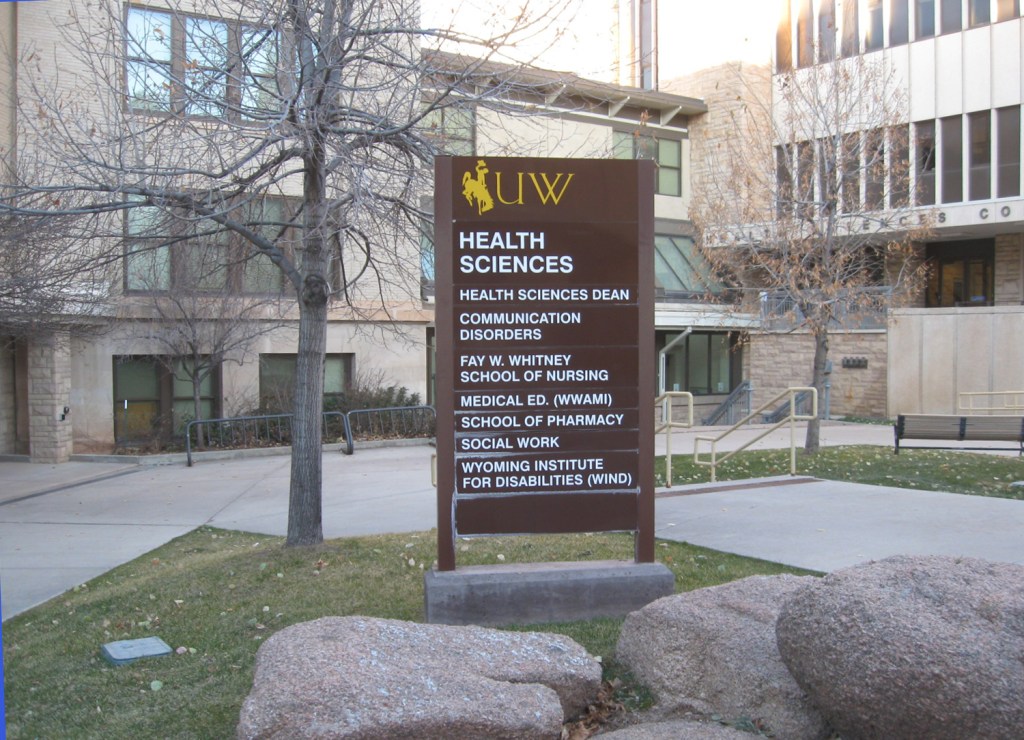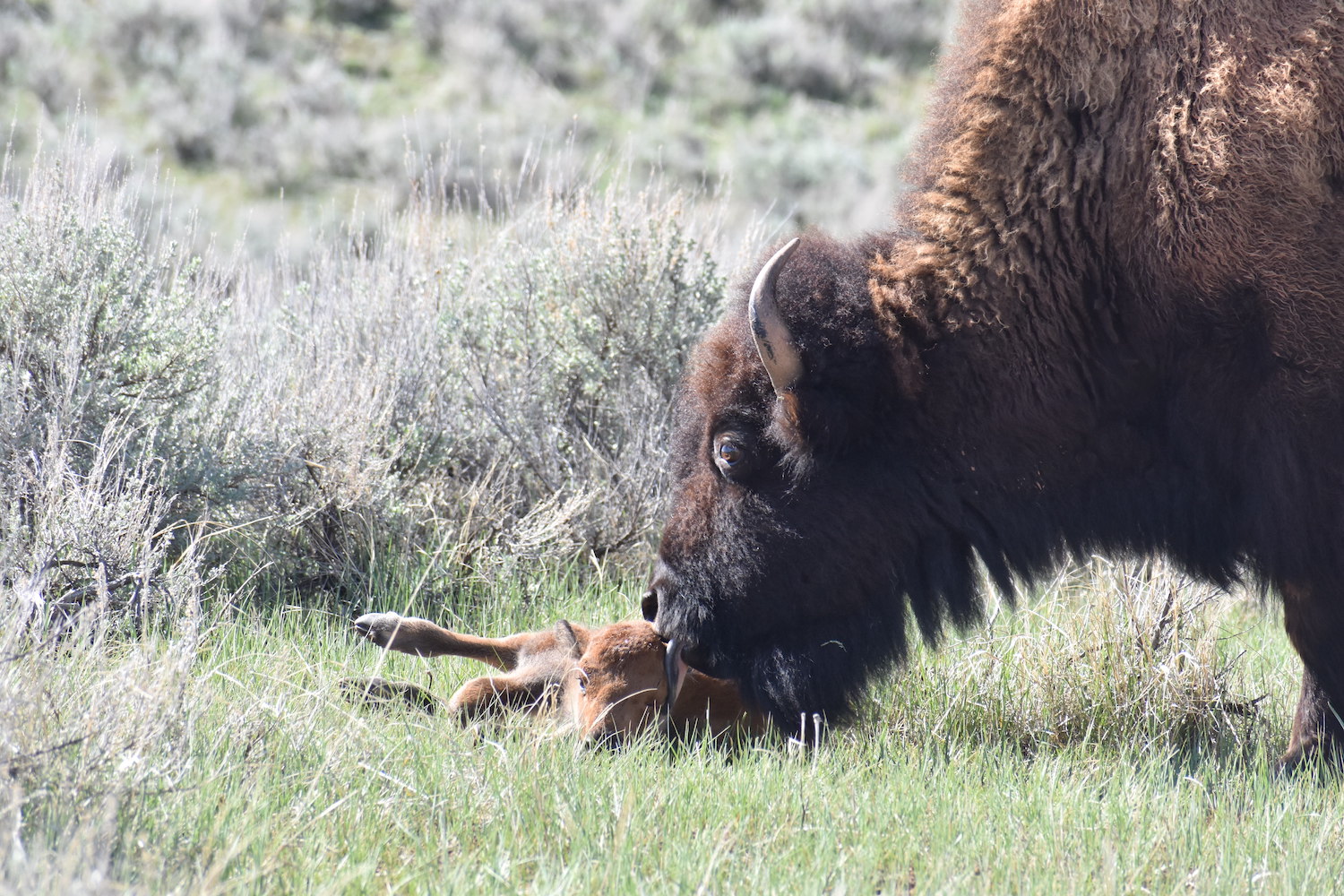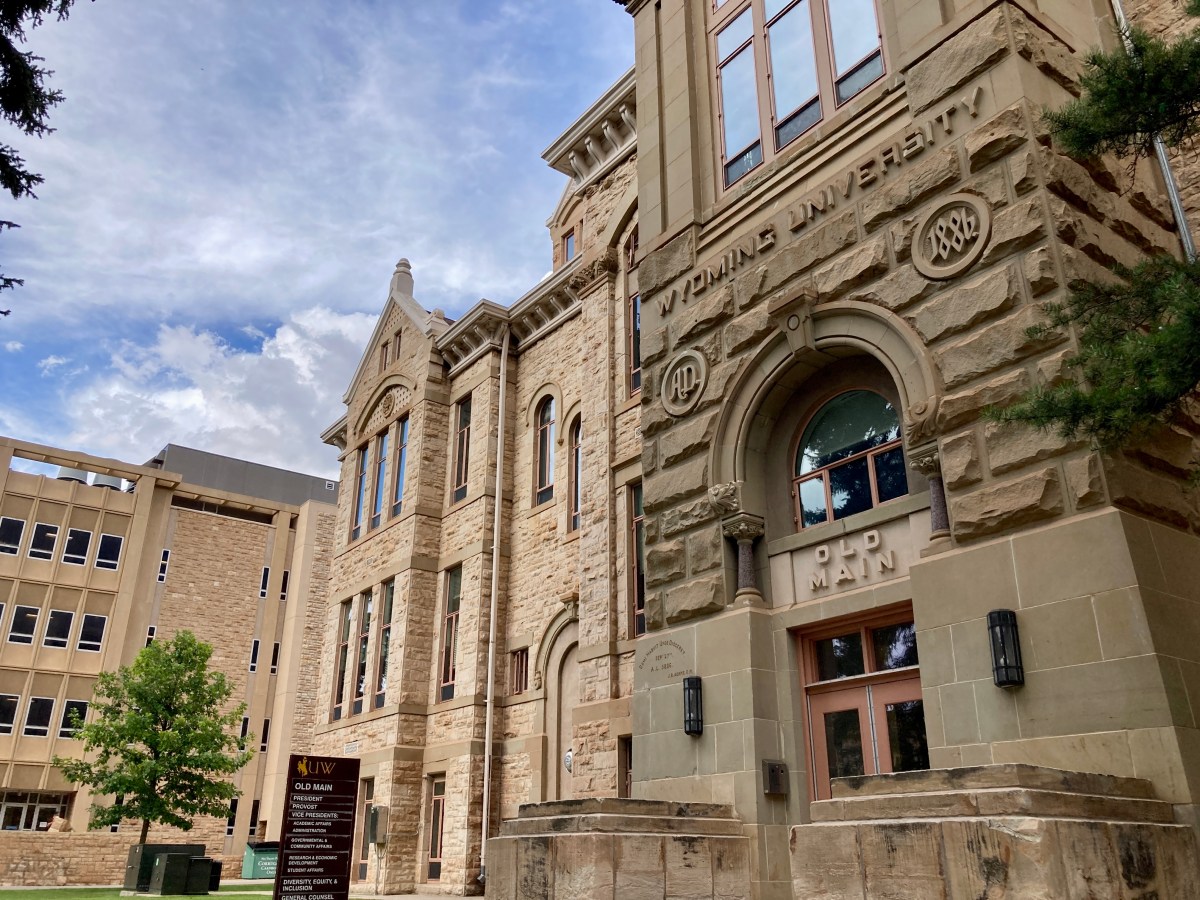The institution that trains many of the people responsible for the health and well-being of Wyoming citizens is on shaky ground because of questionable leadership practices at the University of Wyoming.
Opinion
As a retired professor and former chair of UW’s faculty senate, I’m now on the outside looking in, but what I see reminds me of a pattern of secrecy I experienced throughout my 32 years at Wyoming’s only publicly funded university. This time around, it’s Wyoming’s future physicians, pharmacists and social workers on the line, as well as critical support services for Wyomingites living with disabilities.
While known to some, problems with the UW College of Health Sciences surfaced publicly on Oct. 19 at an all-college meeting. These semi-annual gatherings of college personnel with their dean are generally ho-hum affairs. But from what I heard from those present, the participation of so many heavy hitters gave this meeting a distinctly different feel. Dean Jacob Warren, who came to UW from Georgia in the summer of 2022, was flanked by UW President Ed Seidel and his second-in-command Provost Kevin Carman. Also present were the head of UW’s Human Resources Bob Link, senior vice-provost Tammy Benham Deal, UW’s chief legal advisor Tara Evans, and Brett Befus, associate vice president for development.
Instead of breezy talk about the future, the dean announced that the standard script would be set aside. He would address one topic alone: why he recently placed two respected Health Sciences unit heads on administrative leave and recommended that they resign their positions. The president then expressed confidence in Dean Warren. The provost spoke about UW’s dispute-resolution process. He emphasized the confidentiality of personnel information under Wyoming law.
It seems unusual for a new UW dean to trigger resignations from his leadership team so soon after arrival. To me, the cause was clear. A week earlier, on Oct. 11, 14 college employees signed and submitted a formal complaint about Warren — another 23 lent their support to the cause, albeit anonymously. Signatories to the complaint included the deans of nursing and pharmacy. Both answer to Warren, making the gesture an existential threat to their careers. The letter followed an Oct. 10 meeting in which five of seven division or unit directors in the college voted no confidence in the dean. Two other directors chose not to vote.
The letter contained allegations later summarized in an article published by journalist Jeff Victor on Oct. 17: nepotism, altered grant applications, abuse of power, employee intimidation and possible violation of federal regulations. Two days after Victor’s piece appeared, the provost communicated to the campus community that he was unaware of any evidence of unethical conduct or wrongdoing by the dean or any violation of university policy. He encouraged UW employees to “trust … the process” for resolving faculty grievances. The provost underscored in a subsequent email to college employees that they must keep their grievances within the family, which brings to mind good mafia soldiers bound to the code of omertà.
The provost’s final two sentences in the email make this explicit:
“I will also note that some information in the [complaint] is confidential personnel information that is protected from disclosure under Wyoming law. If confidential information is shared publicly, there could be disciplinary consequences, up to and including termination.”
Note the ambiguity of the word “some” in the first sentence. What constitutes personnel information is undefined. It’s worth noting that the university offered a similar justification when refusing to explain the surprise dismissal of then-UW President Laurie Nichols in 2019. WyoFile and the Casper Star-Tribune sued the university for the relevant records, and a judge determined that the university was applying its beloved personnel confidentiality exemption beyond the limits of Wyoming’s records laws. The lesson doesn’t appear to have been taken.
Pattern of secrecy
Following the provost’s cease-and-desist order to faculty, the university’s conciliator piled on with a statement that “no one involved [in the mediation process] will be communicating or answering questions about the process.”
Nothing makes people more curious than being told they’re not allowed to ask questions. Recent history at UW shows there’s good reason to be skeptical about the use of secrecy in this instance.
It echoes the secrecy surrounding Nichols’ dismissal. The basis for her firing by the university’s board of trustees was a closely-held secret until the joint investigation by WyoFile and the Casper Star-Tribune and subsequent court order brought it to light. Interestingly, given the current situation in the College of Health Sciences, the basis for her dismissal were claims that Nichols yelled at subordinates including a UW Foundation staffer and a student employee. After 10 months of silence and a succession of media reports, the trustees admitted publicly they conducted a secret investigation of Nichols’ behavior. Nichols said she was never formally notified of the original complaints, nor that she was being investigated.

There are other examples. One of the more remarkable was the College of Agriculture keeping its joint ownership of the Y Cross ranch a secret from UW employees. The ranch was donated jointly to UW and Colorado State University under a memorandum of understanding with its former owner, Amy Davis. As a result, and some not-so-subtle directives to UW employees to stay off the ranch, it was effectively off-limits for research and other projects. This was compounded by a refusal to share the memorandum of understanding with the public, as UW and CSU moved forward with plans to sell the ranch in 2015. Shortly after the ranch was sold, WyoFile secured the memorandum — not from UW but from the Laramie County Clerk of District Court — and published it.
Ripple effect
Years of embracing a Cone of Silence approach at UW have now landed on the College of Health Sciences. Keeping the rationale for decisions under wraps, and thereby muffling dissent, has particular impacts when it affects Wyomingites with disabilities and their livelihood, and the education of Wyoming’s future health care providers. As a faculty member and close observer for years, I can tell you that the university’s reliance on secrecy isn’t new, but recent developments suggest that it is expanding in troubling ways.
As noted in the Laramie Reporter, two of seven unit heads in the College of Health Sciences were forced to resign from their administrative positions since Warren’s arrival in July 2022, both in one month. The two are Brant Schumaker (former director of WWAMI, Wyoming’s medical school) and Sandy Root-Elledge (former executive director of the Wyoming Institute for Disabilities; WIND). Such events are unusual. By university regulation, the firing of a unit head normally involves significant participation in the decision by that unit’s personnel. So far as I know, no such consultation occurred in either instance.
The WIND program was established at UW in 1994 and has since grown in size and impact. Its mission is to help the disabled of Wyoming, including training and supporting people who work with the disabled. It is authorized by the Developmental Disabilities Assistance and Bill of Rights Act of 2000. Root-Elledge, WIND’s former executive director, first joined the unit in 2004. She has a close personal connection to children with disabilities, as well as to their families. She became WIND’s director in 2016. She retains the confidence of WIND’s consumer advisory council — which serves as her advisory board — according to Chele Mecomber Porter, one its members. The same council member says that the council has had little contact with Dean Warren throughout his tenure at UW.
Since 2017, Root-Elledge and campus colleagues secured $32.7 million in external funding for disability teaching, research and service. With the $26 million in funding she helped generate beginning in 2004, Root-Elledge established the Wyoming Assistive Technology Resources program, the Wyoming Educational Materials program, the Wyoming Family to Family Health Information Center, the Wyoming Accessibility Center, Wyoming iCan Connect and Wyoming’s Project ECHO. By any measure, Root-Elledge was a successful, effective and popular administrator. Since the start of 2023, and her departure as executive director, seven of 23 employees at WIND have resigned from UW.
The sense I get from members of WIND’s consumer advisory council is that Dean Warren lacks an understanding of the Developmental Disabilities Act, the needs of the disabled and how best to serve them professionally.
The situation in Wyoming’s physician-training program is also troubling. A group of WWAMI medical students expressed their concerns during a public session of UW’s Board of Trustees at their November meeting.
On Dec. 6, President Seidel met with a group of 12 employees from the College of Health Sciences. I joined as an observer. One read a prepared statement expressing multiple concerns about Dean Warren’s leadership of the College of Health Sciences. She described the current working climate in the college as fearful, distrustful, exhausting and toxic. She said it was unacceptable that UW’s upper administration has yet to publicly acknowledge the recent vote of no confidence in Dean Warren by a majority of his leadership team. Two other WWAMI employees spoke in agreement. It was telling that, given current concerns about retaliation, the employee was reluctant to give Seidel her typed statement, which identified her. Seidel assured the group that the situation in Health Sciences was the subject of active discussion between his office and the Board of Trustees.
Fourteen university employees, and the rest of us, are about to find out whether UW’s formal mediation and dispute resolution process works as advertised.
The impulse for UW’s upper administrators to circle the wagons and support one of their own is hardly unique, but it is unhealthy. Such opacity and apparent cronyism breeds suspicion, erodes faith in the institution from the inside out, enforces deference, discourages the kind of collaboration and intellectual risk-taking that underpin successful research institutions, and destroys morale and esprit de corps. The university’s employees, Wyoming’s taxpayers and the citizens served by the College of Health Sciences’ programming all deserve better — they deserve to know just how this critical institution is run.
Even Maxwell Smart knew that.
Correction: The spelling of Brett Befus’ name was corrected, as well as details about UW leadership present at the Oct. 19 all-college meeting. —Ed.



Thanks to employees and students in the College of Health Sciences speaking up, Dr. Jacob Warren was removed from his position as dean of the college on 26 Jan 2024.
Why the need for so many high paid administrators? Dean of this. Provost of that. All of them likely making 6 figures and up while staff probably scrape by. What do they even do all day? This is what’s wrong with universities in general. Hard to not see them as a money-making pyramid scheme for many attendees.
Well said Donal!
It would be nice if the reporter found out what was going on Not just report on the friction. Evidently there’s a problem with Warren, simple question what is it Shouldn’t be too complicated to figure out.
1. This is an opinion piece, not a news story. 2. See how some of the text is blue? Those are hyperlinks to other stories that provide the answers you seek. Shouldn’t be too complicated to figure out.
This article is well written and truthful. The “Good Ole Boys’ club needs to be scrutinized by an outside entity because the inside system is corrupt at best. Dean Warren has repeatedly refused to meet with the Consumer Advisory Committee and give us his explanation on his vision of collaboration. His decisions have had a very negative effect on the state of Wyoming’s disability population and to those who serve the individuals in every aspect of life.
Secrecy of any public institution is extremely toxic to the individuals who work there, as well as those served. I congratulate those who publicly voiced their concerns. I sincerely hope our legislators take this incident seriously, not only for the university and their students, but all of Wyoming’s institutions.
Maxwell Smart – “Would you believe….?”
Yeah, Donal, I’d believe. Keep bringing the sunlight.
As a practicing psychotherapist, I am sickened that Ms. Root-Elledge has been terminated from her position. I have taken advantage of the trainings I need for continuing education, using the Echo program. The program is one of the best that I have seen, and it continues to be part of a large study to prove its excellence. As an added bonus, educators in the program come from all over the US and can expand what is known in our state. Thank you